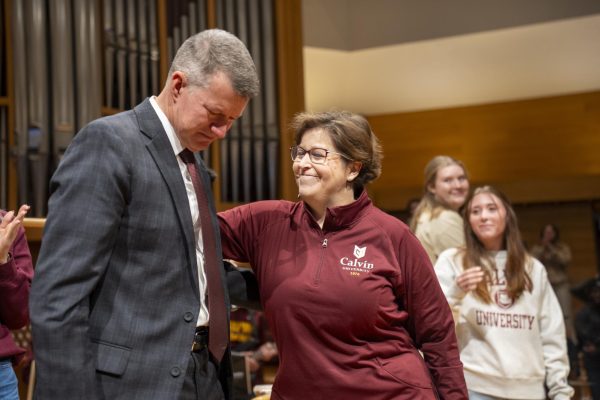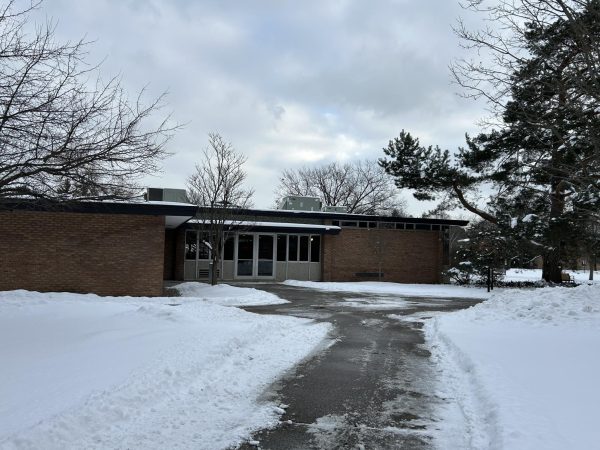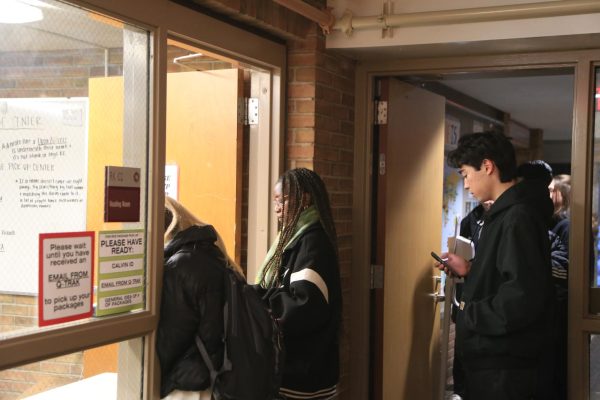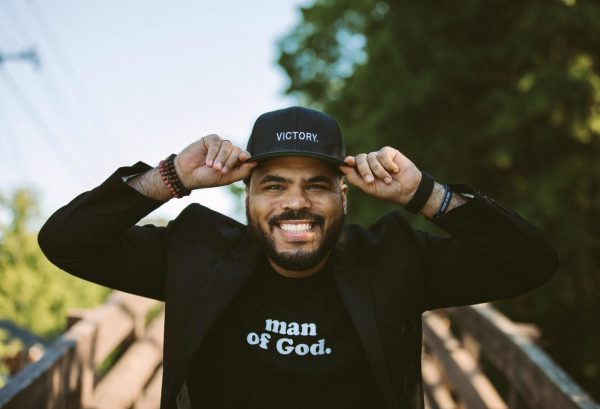Panelists discuss Christian and Muslim relations in 2018
Three panelists came to Calvin to address the heightened climate of fear surrounding Muslim immigration to the US in recent years on Monday night. In the context of International Education Week, this event touched on immigration, international relations and diversity. The panel was titled “Muslim immigration, Christian fear and the future of democracy.”
Though united by their common interest in engaging differences in faith and politics, each of the panelists came with a different perspective. Stephanie Summers, CEO of the Center for Public Justice, has worked to cultivate civic engagement in Christian and public circles. Shadi Hamid, a senior fellow of the Project on U.S. Relations with the Islamic World from the Brookings Institute, has dual expertise in Islamic politics and democracy in the United States. Matthew Kaemingk, a professor of Christian ethics at Fuller Theological Seminary, brought a theological perspective with an emphasis on Christian hospitality.
The discussion highlighted the current polarization the United States is facing, and how citizens and people of faith can move away from isolation toward civility. Kaemingk described the space where people engage with opposing viewpoints as a table, and explored what it means to have “table manners.”
Summers mentioned that there is an “active component” to being a citizen in a pluralist society; it involves being “called into that problem-solving space,” where one is willing to have controversial discussions. She added that living in a pluralist society means being people “who aren’t allergic to nuance,” when it comes to understanding how differences can coexist.
One attendee asked why the rhetoric used by President Trump has successfully cultivated a fear of the stranger, even among Christians. Kaemingk answered that the reason Christians have been affected by this fear is that “we’ve forgotten the hospitality that’s been shown to us by God and the public implications of that hospitality.” Summers identified that “hospitality is the antidote to social isolation; it is the pursuit of the love of the stranger.” People of faith should come to political discussions “with a kind of humility,” as Hamid put it, because “in the end, we are human, we make mistakes.”
Andrew Kornilov, a freshman, shared that the discussion “opened up my mind towards what I should do as a person of faith, or not as a person of faith, regardless of what I believe.”
Kevin den Dulk, director of the Henry Institute for the Study of Christianity and Politics, told Chimes that “it’s an always timely discussion to think about how we engage each other across lines of difference, but it has taken on a special urgency over the last couple of years.” He believes these discussions are appropriate “on a campus where we’re thinking a lot about what it means to have a ‘third way’ conversation about politics and faith.”







